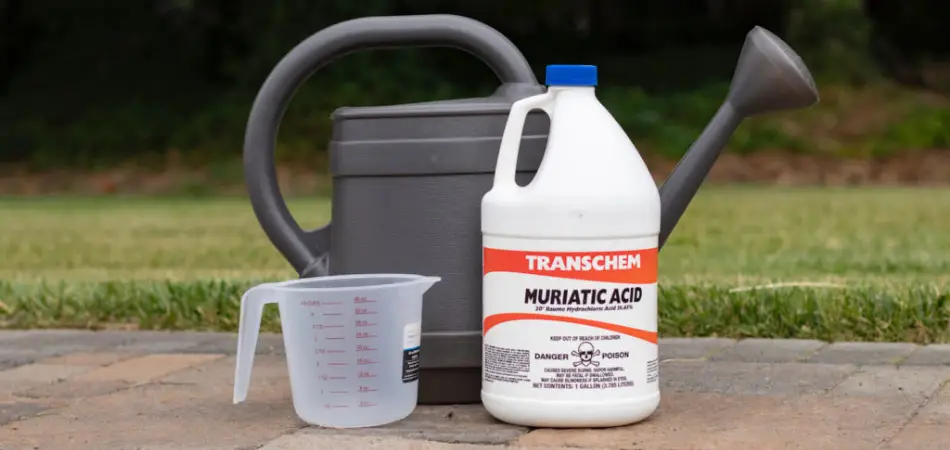Like other chemicals, muriatic acid is a strong, concentrated acid that can attack and melt surfaces, including metals. It can remove rust, but it must be diluted to avoid incurring damages to the surface of the metal or possibly causing health hazards. So, does muriatic acid remove rust?
Yes, Muriatic Acid is a powerful acid that can remove rust. However, it needs to be handled with caution. If you are not familiar with handling strong acids, this is not something we would recommend because it can have some very serious side effects.
Also, Muriatic acid is sold in local hardware stores and can remove rust on many different surfaces, including concrete and brick. Muriatic acid can also be used for cleaning toilets or removing oil stains from floors.
After reading this article, you will understand how you can remove rust with muriatic acid, the precautions to take while doing it, and also the materials you can use muriatic acid on.
Contents
Steps to Remove Rust with Muriatic Acid
Rust removal is an activity that requires a guideline or step-by-step approach because of the chemicals involved in it, and the material where rust remover will be applied on.
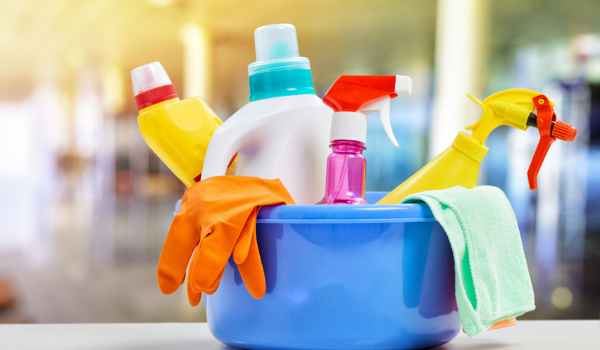
To remove rust with muriatic acid, here are things you will need:
- Dust mask
- Chemical-resistant rubber glove
- Bucket
- Goggle
- Two brushes
- Muriatic acid.
Here’s a guide on how to remove rust using muriatic acid:
- Wear rubber gloves, goggles, and a dust mask to prevent fumes from the acid entering your nose, touching your skin, or making your eyes sting.
- Keep the doors and windows open to air to enter the workspace or where you will stay and remove the rust.
- Fill the bucket half-full with water.
- Add the muriatic acid and mix to fill up the other half.
- Immerse the brush into the solution. But be careful not to allow the solution to touch your skin.
- Remove the brush and apply the solution to the area affected by rust.
- Allow the solution to remain in the area affected by rust for at least one hour.
Apply the solution with the brush again if the surface dries out:
- Scrub the rust away with another brush.
- Rinse the area thoroughly with clean water to prevent the acid from attacking the surface and damaging it.
- Air-dry the area completely.
Safety Precautions To Take When Using Muriatic Acid
When using muriatic acid to remove rust, observe or apply the following precautions:
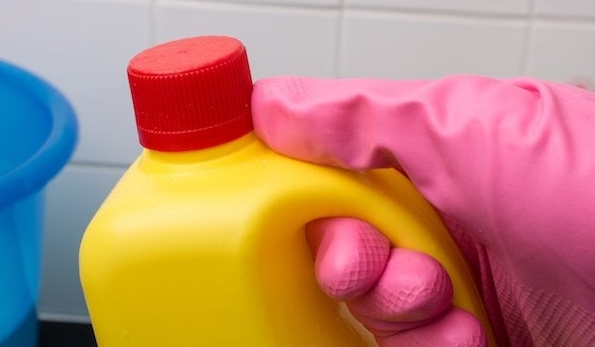
- Always pour acid into the water when diluting the muriatic acid and not vice versa. Doing it the opposite way can lead to the acid reacting with the water violently.
- Wear plastic safety glasses, chemical-resistant gloves, and protective clothing when handling muriatic acid, because it can cause huge damage to the skin, lungs, eyes, nose, and throat.
- Avoid splashing the diluted acid during use.
Keep a neutralizing agent like baking soda by the side in case of accidental splashes and spills.
- Ensure to clean residues by flushing the surface with fresh, clean water after applying the acid solution.
- Provide enough ventilation especially if you are using the acid solution indoors. The fumes from muriatic acid can be harmful to both people and metallic objects and surfaces.
- Muriatic acid containers should be disposed of properly, and not kept close to a source of heat since they can easily explode.
Materials To Use Muriatic Acid On
Muriatic acid has some harmful effects which can affect some materials when it comes in contact with it, but this effect is dependent on the level of concentration of the hydrogen chloride in the solution. Once the acid is diluted, its acidic properties are reduced and it becomes good for use.
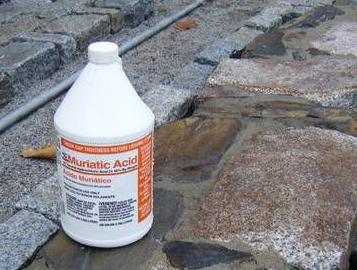
Here are some materials you can apply muriatic acid on to remove rust from it:
- Tiles: Muriatic acid is a good cleaning agent for rust on ceramic tile floors, although it’s not highly recommended because it can dissolve the carbon minerals present in tiles. After cleaning with acid, do not walk on the floor until you neutralize the acid by rinsing it thoroughly with clean water.
- Concrete Surfaces: Cleaning the concrete surface with muriatic acid will make it react and produce calcium carbonate which is a powder residue. Endeavor to clean this residue and fill the underneath roughened and porous surface to avoid acid etching which can damage the concrete.
- Masonry: Using muriatic acid to wash masonry structures will neutralize the masonry’s alkalinity, making its surface suitable for painting. Like concrete surfaces, endeavor to remove the powder residue that forms on the surface after cleaning, for the surface to be coated or painted.
Note: However, muriatic acid will attack most of the surfaces it comes in contact with, including fabrics, plastics, metals (although there are exceptions), ensure that you dilute the acid before using it, or you opt for other cleaning solutions like phosphoric acid which is less dangerous.
Is Muriatic Acid Corrosive?
Muriatic acid which is also known as hydrochloric acid is a colorless or slightly yellow liquid with highly corrosive characteristics, and it is a solution of hydrogen chloride in water.
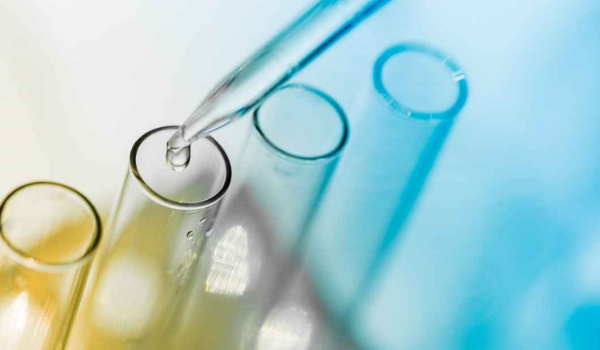
In the solution, the concentration of water is usually 60 to 70%, and the concentration of hydrogen chloride is usually 30 to 40%.
If you intend to use it for cleaning, ensure that the acid is diluted in the ratio of 1 (acid) : 10 (water) and apply it to the material you intend to clean with a sprayer or brush.
Uses of Muriatic Acid
Muriatic acid can be used for a wide range of purposes. Some of them are:
- Metal industries use it to remove surface oxides.
- Food industries use it in the production of high fructose corn syrup.
- Petroleum industries use it for oil well acidification, to help increase their rate of production.
- Manufacturers of pharmaceutical and chemical products use it to make chlorides and hydrochlorides, and also to control the pH of chemical processes.
Conclusion
Muriatic acid is a good rust removal agent, but to avoid environmental and health hazards and also achieve effective results, endeavor to dilute the acid with water.

